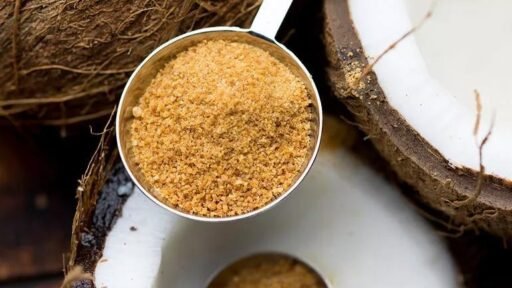Seed oils like canola, soybean, and corn are staples in processed foods, but their high omega-6 content and processing methods have sparked health concerns. Are these oils silently harming your body? Nexus Mag dives into the science behind seed oils’ risks—from inflammation to metabolic issues—and offers healthier cooking fats to protect your wellness. Let’s uncover the truth!
What Are Seed Oils?
Seed oils are extracted from plant seeds, often called vegetable oils. Common types include:
- Canola (rapeseed)
- Soybean
- Corn
- Sunflower
- Safflower
- Cottonseed
- Grapeseed
- Rice bran
They’re cheap, versatile, and dominate processed foods, fast food, and snacks. However, their high polyunsaturated fatty acid (PUFA) content, especially omega-6, raises red flags.
How Are Seed Oils Made?
Seed oils are extracted via:
- Chemical Extraction: Uses solvents like hexane, which may leave trace residues (though unregulated by the FDA). The oil is refined, deodorized, and bleached, potentially reducing nutrients.
- Mechanical Extraction: Cold- or expeller-pressing avoids chemicals but produces oils with lower smoke points and shorter shelf lives. These are pricier and less common.
Critics argue chemical processing introduces toxins, while high-heat refining makes PUFAs prone to oxidation.
Health Risks of Seed Oils
Seed oils’ high omega-6 PUFAs (e.g., linoleic acid) and processing methods pose several risks:
1. Chronic Inflammation
Omega-6 fats are essential but problematic in excess. Modern diets have a 10:1 or higher omega-6 to omega-3 ratio, far from the historical 1:1. Excess omega-6 converts to arachidonic acid, fueling inflammation linked to heart disease, diabetes, and arthritis.
2. Oxidative Stress
PUFAs oxidize easily, especially when heated, forming free radicals and lipid peroxides. These damage cells, DNA, and mitochondria, contributing to aging, cancer, and neurological disorders.
3. Metabolic Disorders
High omega-6 intake may disrupt insulin signaling, promoting insulin resistance, obesity, and type 2 diabetes. It also alters fat storage, increasing unhealthy fat accumulation.
4. Cardiovascular Harm
Oxidized PUFAs impair endothelial cells, raising risks of atherosclerosis, hypertension, and heart disease. However, some studies, backed by the American Heart Association, suggest omega-6 improves heart health when replacing saturated fats.
5. Brain and Immune Health
Oxidized lipids may cross the blood-brain barrier, causing neuroinflammation tied to cognitive decline and mood disorders. Chronic inflammation from omega-6 can also weaken immunity, increasing infection and autoimmune risks.
6. Liver Strain
Metabolizing seed oils produces harmful byproducts, potentially leading to non-alcoholic fatty liver disease and impaired detoxification.

Are Seed Oils Toxic?
Social media labels seed oils as “toxic,” but the truth is nuanced. While omega-6 fats are essential, their overconsumption in processed foods—think fries, chips, and packaged snacks—amplifies risks. These foods often pair seed oils with sodium, refined carbs, and sugars, compounding health issues. Moderate use in home cooking (e.g., roasting veggies) is less concerning, especially if balanced with omega-3-rich foods like salmon or walnuts.
Healthier Alternatives to Seed Oils
Swap seed oils for stable, nutrient-dense fats:
- Extra Virgin Olive Oil: High in monounsaturated fats and antioxidants, it resists oxidation and supports heart health. Ideal for dressings or low-heat cooking.
- Coconut Oil: Stable at high heat, its saturated fats may reduce inflammation and boost immunity.
- Animal Fats (Tallow): Heat-stable, minimally processed, and rich in fat-soluble vitamins. Great for roasting.
- Avocado Oil: Monounsaturated-rich, perfect for high-heat cooking, with antioxidants for cellular health.
- Butter or Ghee: Grass-fed butter offers vitamins A, D, E, and K. Ghee, lactose-free, is ideal for high-heat cooking and may have antioxidant properties.
Tips to Reduce Seed Oil Risks
- Cut Processed Foods: Limit fries, chips, and packaged snacks where seed oils dominate.
- Boost Omega-3s: Eat fatty fish, walnuts, or flaxseeds to balance omega-6 intake.
- Choose Cold-Pressed Oils: If using seed oils, opt for minimally processed versions.
- Cook Smart: Use stable fats like avocado oil for high-heat cooking to minimize oxidation.
- Read Labels: Check ingredient lists for canola, soybean, or corn oil in processed foods.
FAQs About Seed Oils
Are all seed oils bad? Not inherently, but their high omega-6 content and processing make them risky in excess, especially in processed foods.
Can seed oils fit a healthy diet? In moderation, used in home cooking with whole foods, they’re less harmful. Balance with omega-3s.
Why are seed oils so common? They’re cheap, versatile, and have a long shelf life, making them ideal for processed food production.
Cook Healthier, Live Better
Seed oils aren’t inherently evil, but their omega-6 overload and oxidation risks can harm your health when consumed in excess. By cutting processed foods and switching to stable fats like olive oil, avocado oil, or ghee, you can reduce inflammation and support long-term wellness. Explore more nutrition tips in our Lifestyle hub at Nexus Mag.






